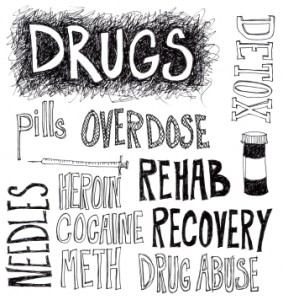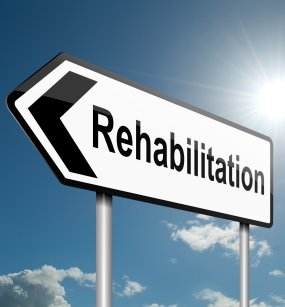The phrase “
I’m addicted” has become vague and misleading today. Your friends tell you they are addicted to a certain television program, or addicted to a certain food for example, but thinking rationally you can surmise your peers are simply exaggerating expressing themselves through hyperbole.
Real addiction isn’t eating an entire pizza in one sitting, or binge watching your favourite show on Netflix, it a real and potentially life ruining affliction that thousands of Torontonians go through every day
[1].

While addiction is commonly associated with excessive drug and alcohol use, it can also be linked to other seeming normal behaviors as well, such as shopping or drinking coffee, but for any behaviour to be classified as an addiction it typically has to fit a
certain criteria. Experiencing cravings or an uncontrollable compulsion of doing an act; with a substance, person, feeling or behaviour, whilst neglecting possible social, psychological or physical consequence as a result of that act, justly defines an
addict [2].
Alcohol and
drug addiction is not only hazardous to your health, but it greatly affects the people around you. Addicts shrug off responsibility, spending the majority of their time thinking about and acquiring their next score; pushing away the people who care for them the most, and instead surround themselves with individuals who share the same habits.
This
self-destructive behaviour is not only frowned upon by society but is also leaves concerned friends and family members feeling helpless as addicts often deny having a problem. An effective method of convincing an addict of an addiction is by holding an intervention. With the presence of an addiction counsellor, loved ones can gather together to confront the individual explaining to him or her how their addiction has caused negative consequences, and ask them to accept treatment
[3]. These sessions are often very emotional and illuminating for everyone involved, and increase the chances of the addict to seek help willingly.
The first step to recovery is admitting you have a problem, only then can you make meaningful strides to a life of better choices and sobriety. Professional help is available all across
Toronto to aid you or a loved one in need.
Canada’s largest mental health and addiction teaching hospital, and one of the world’s leading research centers in the field. Focused on evidence based clinical practices, the doctors and researchers at CAMH continually seek new and better ways to enhance patient focused care. Having many clinical, support and rehabilitation programs, they are well equipped to meet the diverse needs of people who are at risk for mental health and addiction issues. Main sites are located in
downtown Toronto.
Support line 416-535-8501.

Alcoholism is a common affliction which can lead to detrimentally health effects down the road, and potentially even hurt others around them, when not drinking responsibly. Alcoholics Anonymous is globally practiced group following that are there to themselves and help others. By holding meetings of fellow recovering alcoholics, the program is based on a 12 step system that uses the support of people to assistance individuals getting off alcohol and on to a path of recovery. Attending a meeting is very accessible as they are free across Toronto. Main offices can be located at
234 Eglinton Ave, Toronto. Support Line 416-487-5591.
Sometimes getting away from all the distractions of the big city is just was the mind and body needs to combat addiction. Located just outside of Toronto; Hillcrest is an all-inclusive rehab program offering to help various types of addiction, from gambling to substance abuse. Their expertly tailored programs are staffed with professionally trained counsellors and case managers. They understand that addiction can be embarrassing and difficult to initiate, so they emphasise confidentiality and offer admission assessment services free of charge. Providing support, education, and treatment for addicts and families affected, the Hillcrest addiction rehabilitation center support your freedom from addiction. They can be located on
20 De Boers Drive, Toronto. Support line 1-844-899-9959.
Coming to terms with addiction is no easy task. Disappointing family and friends can also be a catalyst for addiction to spiral out of control. Everyone deserves to be happy, but chasing that happiness from the bottom of a bottle or from a high inducing substance is fleeting and leaves you feeling empty inside. Real happiness comes from within, and can’t be purchased at a liquor store, or some street corner. Choose your future, choose life.

 While addiction is commonly associated with excessive drug and alcohol use, it can also be linked to other seeming normal behaviors as well, such as shopping or drinking coffee, but for any behaviour to be classified as an addiction it typically has to fit a certain criteria. Experiencing cravings or an uncontrollable compulsion of doing an act; with a substance, person, feeling or behaviour, whilst neglecting possible social, psychological or physical consequence as a result of that act, justly defines an addict [2].
While addiction is commonly associated with excessive drug and alcohol use, it can also be linked to other seeming normal behaviors as well, such as shopping or drinking coffee, but for any behaviour to be classified as an addiction it typically has to fit a certain criteria. Experiencing cravings or an uncontrollable compulsion of doing an act; with a substance, person, feeling or behaviour, whilst neglecting possible social, psychological or physical consequence as a result of that act, justly defines an addict [2].
 Alcoholics Anonymous
Alcoholics Anonymous